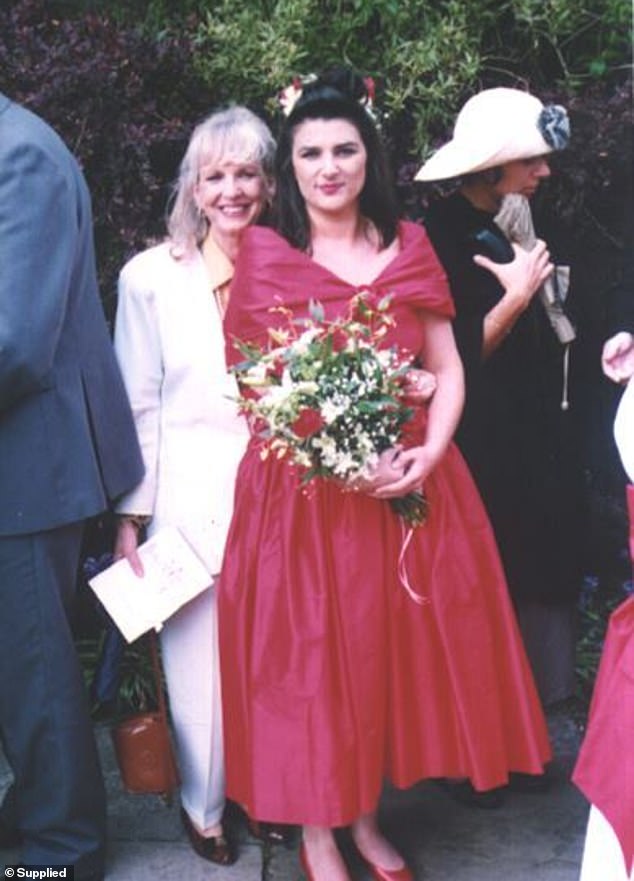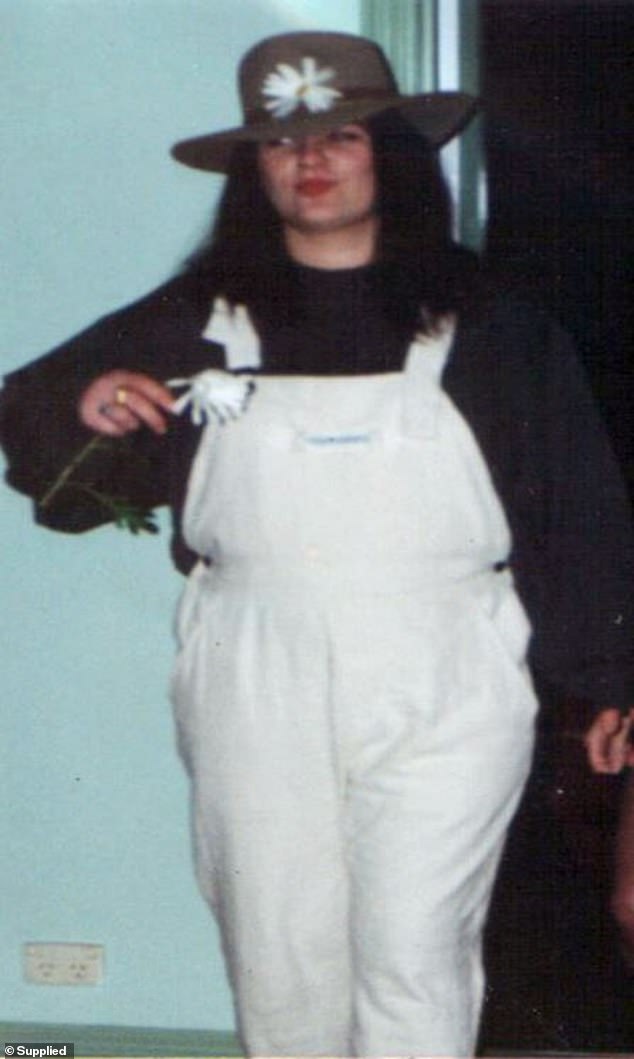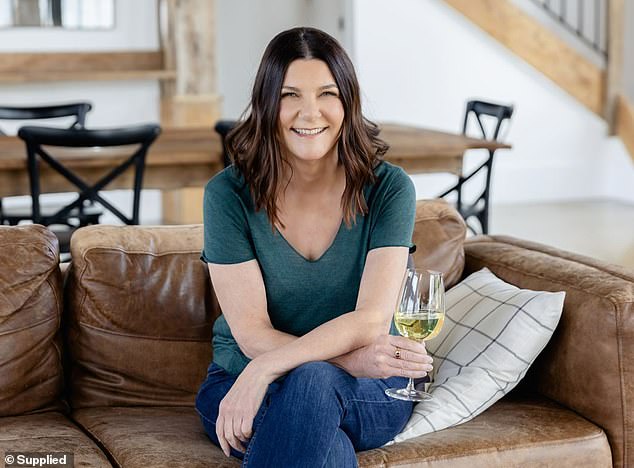There’s a saying about alcohol: you know it’s a problem when it takes more from you than it gives.
But not everyone who reaches that point is an alcoholic – far from it.
For those whose drinking has become a drain but who aren’t physically addicted, the options can feel limited.
Walk into an AA meeting and say, ‘I just need to cut back,’ and you’ll either be laughed out the door or told you’re in denial.
After years of working with women struggling with alcohol, Georgia Foster knew she was also drinking too much.
It wasn’t full-blown dependence – she wasn’t waking with the shakes or drinking from morning to night – but it was enough to raise concerns.
What worked for her wasn’t abstinence or rehab, but something far less conventional.
And it took healing other women who had walked the same path for Georgia to find the solution for herself.

For 15 years, Georgia (centre) drank too much but was reluctant to stop completely
The ‘party girl’ mask
Throughout her 20s and 30s, Georgia lived in London and would party every weekend from Friday through to Sunday.
‘I was drinking a bottle of wine a day if it was a quiet night in and rarely had a day off. When I was out, it was more like one and a half bottles,’ Georgia, now 59, tells me.
‘If it was a boozy Sunday roast at a pub, it would be more like two bottles as the lunch would finish around 9pm.’
‘In London, drinking is part of the culture; no one drives, you’re usually with other expats, it’s a party town and there‘s always someone to drink with. Alcohol was widely accepted, too. It was never uncool to drink,’ she adds.
Georgia quickly developed a ‘party girl’ persona and believed she needed alcohol to be confident, funny and interesting.
Years later, however, Georgia’s drinking began to catch up with her.
‘When I hit my 30s, it was a very different story. A lot of my friends were settling down, getting married and having children, and I was still the party girl.

‘I was drinking a bottle of wine a day if it was a quiet night in and rarely had a day off. When I was out, it was more like one and a half bottles,’ says Georgia, from Melbourne
‘Deep down, I really wanted to settle down and meet someone.’
She recalls one morning waking up with half a cheeseburger on the pillow next to her, which she laughed off. But another incident, when she fell three metres, badly injuring her back, wasn’t quite so amusing.
‘The doctor said to me, “You’re lucky – it could’ve been so much worse,”‘ she admits.
Georgia also gained weight thanks to her booze habit, with a close friend telling her bluntly, ‘If you didn’t drink as much, you wouldn’t have a weight problem.’
While the comment took her aback, Georgia was still reluctant to quit.
Despite the fact she was willing to admit alcohol was now taking more from her than it was giving back, she did not see total abstinence as the solution for her.
A self-proclaimed ‘wine snob’ who genuinely enjoyed a fine tipple, she was determined to find a way to enjoy alcohol in moderation.
‘I wanted to be a middle-ground drinker,’ she explains.
Self-hypnosis
At age 35, Georgia trained to become a clinical hypnotherapist and began working with a range of clients who wanted help with their fears and phobias, as well as issues with weight and sleep.
But there was one particular type of client she saw more than any other: professional women who wanted to reduce their drinking, without quitting entirely.
She saw her own experience reflected in every single one of them. And, incredibly, she found she was able to help them reduce their drinking with hypnosis.

With hypnotherapy, Georgia noticed her mind start to feel calmer, clearer and in control. She wasn’t intimidated by social interaction, which once made her reach for a drink
‘With hypnosis, you can train the brain to have a better relationship with yourself so you’re not reaching for a drink as a way to cope,’ she tells me.
‘Hypnosis is rather like daydreaming, where our conscious mind moves into the background as the subconscious comes to the fore,’ she adds.
Being in this state helps us feel calmer and makes us more suggestible to ideas, such as drinking more mindfully.
Doctors, lawyers and other high-achieving women would walk in unable to moderate their drinking – and just a few sessions later, walk out able to enjoy a glass or two of wine with dinner, then stop without a second thought.
As word spread of her ‘game-changing’ method and her client list grew, Georgia realised she needed to start practising what she preached.
‘I help so many people with their drinking problems and I need to help myself too.’
Georgia began hypnotising herself by recording guided sessions and listening to them on repeat. Through the power of suggestion, she rewired the belief that alcohol made her confident, funny and sociable.
‘I realised I wasn’t addicted to alcohol, but to the person alcohol made me,’ she says.
After a few sessions, Georgia began to feel ‘calmer, clearer and in control’.
She began having alcohol-free days and stopped sneaking in a few drinks before social occasions, something she had always done to help her feel more confident.
But the mother-of-three was still determined to enjoy alcohol on occasion, believing that, in moderation, it can be one of life’s joys.
‘I’m not about the sober movement. You know, having a decadent meal and some delicious wine paired with it – they’re things to enjoy,’ she says.
Having helped herself, and women like her, regain control over alcohol, she believes that anyone who isn’t physically dependent can moderate their drinking.
‘It’s about changing your relationship with yourself, rather than the alcohol,’ she says.












